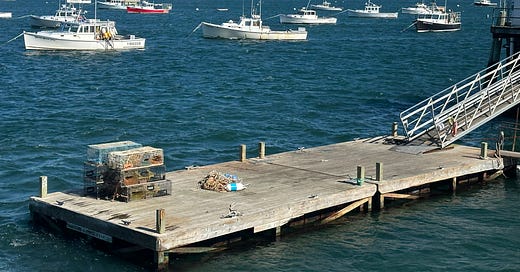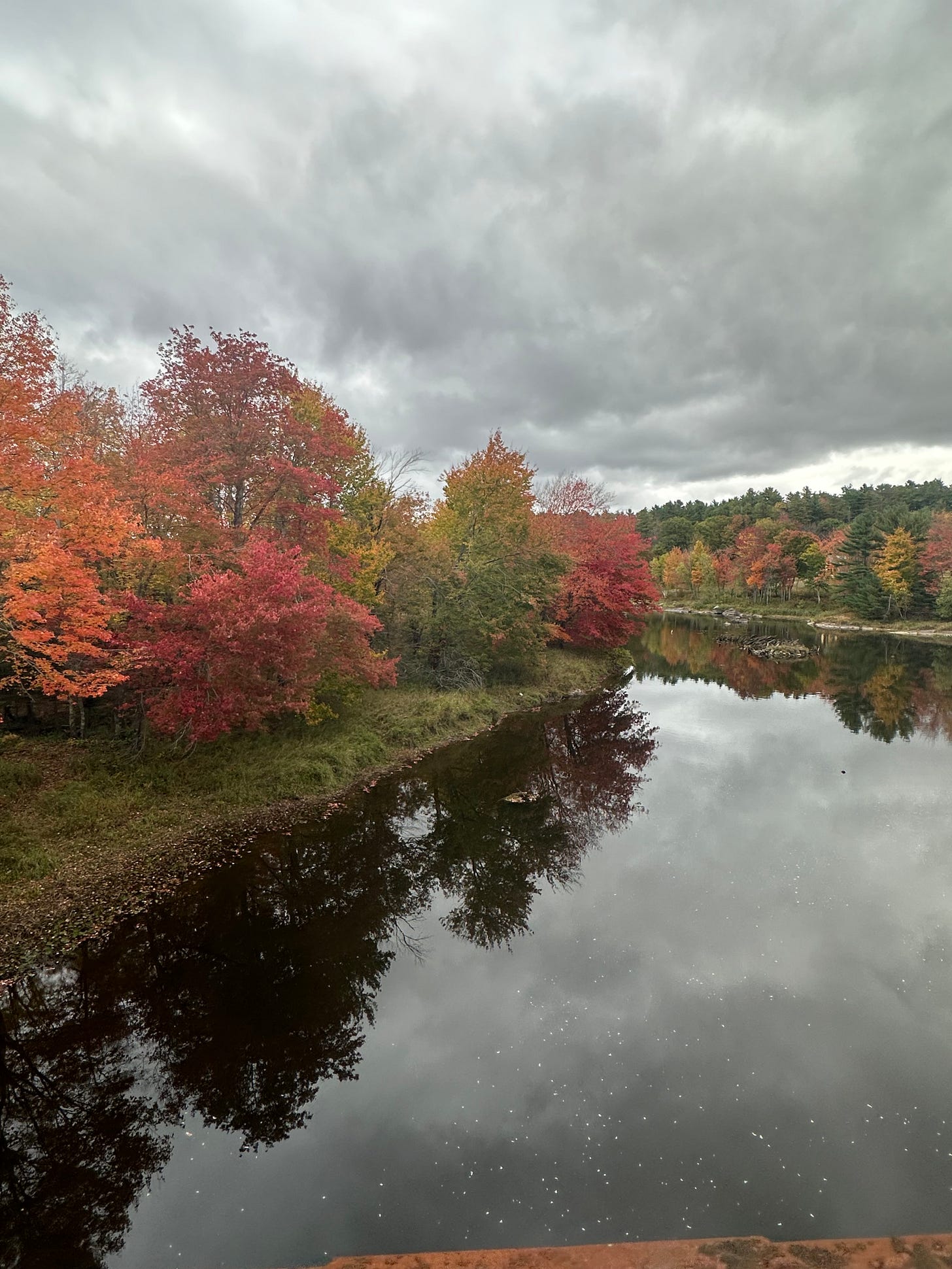My Two Weeks In A Competitive District
I Spent Some Time In Maine's 2nd District, And The Politics Shocked me
I just returned home from two weeks at Moonfall, my family’s vacation house in Maine. I thought I’d share some interesting political tidbits from my time there.
Moonfall is on Mount Desert Island, adjacent to Acadia National Park and about 25 minutes west of Bar Harbor. It is in Maine’s 2nd Congressional District, represented by Democrat Jared Golden, one of the country's most competitive districts. While there, I was bombarded with political ads that left me shell-shocked.
Some of the ads running against Golden by the Republican Party, who hope to defeat him with Maine State Representative and former race car driver Austin Theriault, are not only shocking but downright cruel and disgusting.
Two ads that ran over and over again featured people who were obviously not from Maine since they had Midwest accents, accusing Golden of putting “illegal immigrants” before Mainers and suggesting that “illegals” were getting free apartments while Mainers were going homeless. The ads were pretty insane, considering Maine is toward the bottom of the list of states where migrants are settling. The state does have a thriving population of Somali immigrants, many of whom migrated there to work on fishing boats – fishing is a significant industry in Somalia. They have never really been a problem, however.
Only a handful of migrants have settled in Maine, mainly in Bangor and Portland, and have not been getting “handouts” to the extent suggested in the ads. Some have been able to secure housing the same way anyone else does, and some are being sheltered in hotels and shelters, but notably, the ads indicate that this is housing that should be reserved for Mainers.
Hotel rooms and homeless shelters?
It drove home the “us vs. them” narrative the Republican Party under former President Donald Trump is riding right now.
The fact that the immigration issue may have this level of salience in a state that, if it were any further from the Mexican border, it would be in Canada would mean something about how the issue has taken over the nation's zeitgeist. For decades, the United States and Canada have resisted the level of xenophobia that has flooded the body politic of other Western democracies, especially in Europe. My theory was that because immigrants and their descendants make up such a large number of voters in both countries, immigration attacks don’t land the way they land in countries in Europe that are historically far more homogenous. A Frenchman or a Dutchman can trace his ancestry in the country back maybe a thousand years or more and is likely to be more protective of his culture. Meanwhile, many Americans date back to the mid-to late-19th Century at best.
Of course, in Maine, especially in the 2nd District, many can trace their ancestry back to colonial days. The French-Canadians in Aroostook County go back even farther than that, so if there is any European-like place in America regarding how long people can claim roots in the territory, it’s Maine.
It’s not my first time crossing Maine politics while in the state. In October 2009, ahead of the vote on the Affordable Care Act, I was in Maine and saw political ads for and against the ACA targeting then-Sen. Olympia Snowe, a Republican open to voting for the bill. She ultimately voted against it, but not after receiving an insane level of hate from conservatives who, rather than lobbying her to vote against it, basically bullied her. Among the things conservatives did was send her office bags of rock salt, a reference to “melting snow,” a pun on her surname.
Snowe retired in 2012 and was replaced by Independent former Gov. Angus King, who caucuses with Democrats and is up for reelection this year in a race not considered competitive. I also saw his ads this week. They were more lightheaded and were notable because he didn’t shy away from being a liberal-leaning independent. Also, I noted that Golden’s ads featured people with thick New England accents, contrasting the Republican ads.
Surprisingly, there were also many Harris-Walz signs as I drove around Maine. Tremont, where Moonfall is located, voted for President Joe Biden by 16 points in 2020, and Mount Desert Island is staunchly Democratic, but I noticed quite a few Harris-Walz signs in Ellsworth and Hancock, both towns Trump won in 2020. More interestingly, I saw very few Trump-Vance signs and flags outside houses. I counted three. I remember seeing quite a few more when I was there in 2021 and 2022 – non-presidential election years.
On a lighter note, while in Maine, I ate some delicious lobster, peeked at some of my favorite structures – lighthouses – and saw fantastic colors on land and in the sky. See the pictures below!
I also wanted to give you a heads-up on what’s coming up.
First, many of you did not get the link to the latest stop on THE GREAT AMERICAN POLITICAL ROAD TRIP, Tennessee. Here it is. That happens when you try to email an article while in the passenger seat going 65 on the Connecticut Turnpike. Tennessee was a fascinating state to look at politically. The state’s Democratic Party saw a massive collapse in the last 15 years, mainly because it relied on rural voters. Tennessee’s cities were not solidly blue.
It’s deep Republican now, but looking at the trends, I can see a shift to the Democrats on the horizon. It will just take a while as the realignment sets in. If I were Rep. Andy Ogles, though, I wouldn’t get too comfy.
Texas is up next. It will be an extensive article, and I hope to have it ready for you on Saturday. I plan on finishing all 50 states before the election in three weeks.
While in Maine, I dabbled with video editing, which may make podcasts more fun in the future. In honor of turning 40 last year, I made a playlist, one song for each year I lived. I made a 20-minute montage of the 40 songs as a training exercise. Everything from 1987 on is a song that reminds me of that year.
Enjoy!









If Europeans were traditionally more xenophobic than North Americans is that not likely because low-income immigrants to Europe (many of whom are Muslims from the Middle East and Africa) are inherently more problematic than the Latino low-income immigrants the US gets, while Canada's location allows it to largely exclude low-income immigrants (while admitting lots of highly skilled immigrants through its points system)?